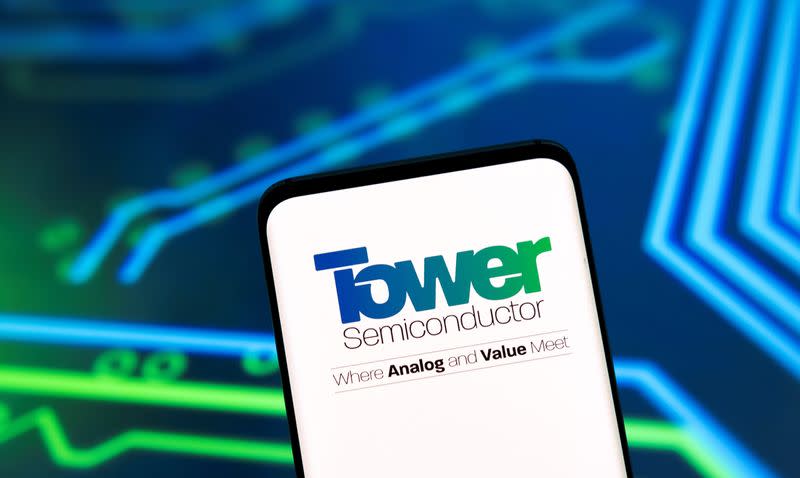Intel said on Wednesday it has scrapped its plan to merge with Israeli contract chipmaker Tower Semiconductor – amid speculation the takeover was a victim of the “chip war” and geopolitical tension between the US and China.
The US chip giant and Tower said the $5.4-billion deal was mutually terminated because they were unable to get prompt regulatory approvals.
Shares of the Israeli company fell about 9% in the United States as well as Tel Aviv.
Intel, which signed a deal to buy Tower last year, will pay a termination fee of $353 million to the latter, according to a statement.
ALSO SEE: China’s Shock Rate Cuts Ring Alarm Bells After Weak July Data
China seen blocking US mergers
However, Intel and Tower did not go into details about the failure to get regulatory approval – from Beijing – for the deal.
The outcome is not a great surprise, given a Wall Street Journal report in April that China was “stalling” several mergers proposed by US firms.
It said Intel’s proposed takeover of Tower Semiconductor was one of several deals that regulators in China had slowed reviews on, such as chipmaker MaxLinear’s $3.8-billion purchase of Silicon Motion Technology Corp, and possibly Broadcom’s $61-billion bid for cloud computing company VMware.
It said China’s State Administration for Market Regulation had asked the companies involved to make products they sell in other countries available in China in a bid to counter US export controls on China, the report said, citing sources close to the process.
Tension over Taiwan and tech spilling into business
Intel and Tower issued statements on Wednesday after Reuters reported late on Tuesday that Intel would drop the deal once their contract expired without regulatory approval from China.
“After careful consideration and thorough discussions and having received no indications regarding certain required regulatory approval, both parties have agreed to terminate their merger agreement having passed the August 15, 2023 outside date,” Tower Semiconductor said in a statement.
The development underscores how tensions between the United States and China over issues including trade, intellectual property and the future of Taiwan are spilling over into corporate dealmaking, especially when it comes to technology companies.
Last year, DuPont De Nemours scrapped its $5.2-billion deal to buy electronics materials maker Rogers Corp after delays in securing approval from Chinese regulators.
Intel chief executive Pat Gelsinger had said he was trying to get the Tower deal approved by Chinese regulators and had visited the country as recently as last month to meet with government officials.
Intel opts to spend $25bn on factory in Israel
But Gelsinger also said Intel was investing in its foundry business, which makes chips for other companies, irrespective of the Tower deal.
In June, Israeli Prime Minister Benjamin Netanyahu announced that Intel had agreed to spend $25 billion on a new factory in Israel, the largest-ever international investment in the country.
Investors had given up hope on the Tower deal as a result. Tower’s Nasdaq-listed shares ended trading at $33.78 on Tuesday, a steep discount to the $53 per share deal price.
In the second quarter, Intel’s foundry business reported revenue of $232 million, up from $57 million a year earlier, as it made advances on rivals such as industry leader Taiwan Semiconductor Manufacturing Co.
The rise in foundry sales came from “advanced packaging,” a process in which Intel can combine pieces of chips made by another company to create a more powerful chip.
Demand for Intel’s chips has cooled after two years of strong growth driven by remote work during the pandemic, leading the chipmaker to turn to cost cuts.
It has committed to trimming $3 billion in costs this year, with an aim of saving between $8 billion and $10 billion by the end of 2025.
- Reuters with additional editing by Jim Pollard
NOTE: The headline on this report was amended on August 16, 2023.
ALSO SEE:
China Stalling Merger Reviews of US Chip Firms, Others – WSJ
Japan Joins US Chip War Against China With Export Restrictions
Intel to Fabricate Chips for Taiwanese Firm MediaTek
Intel Unit, Geely Eye World’s First Self-Driving Car in 2024
























